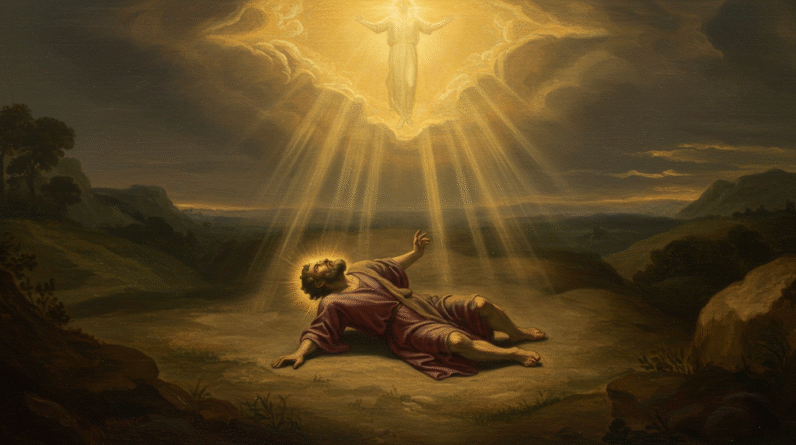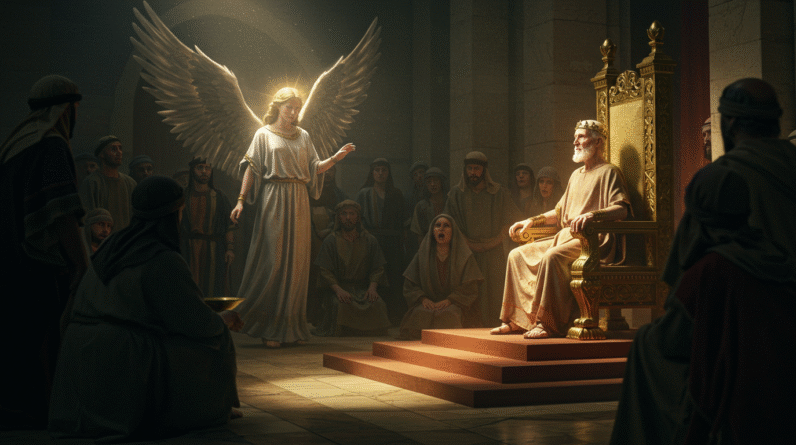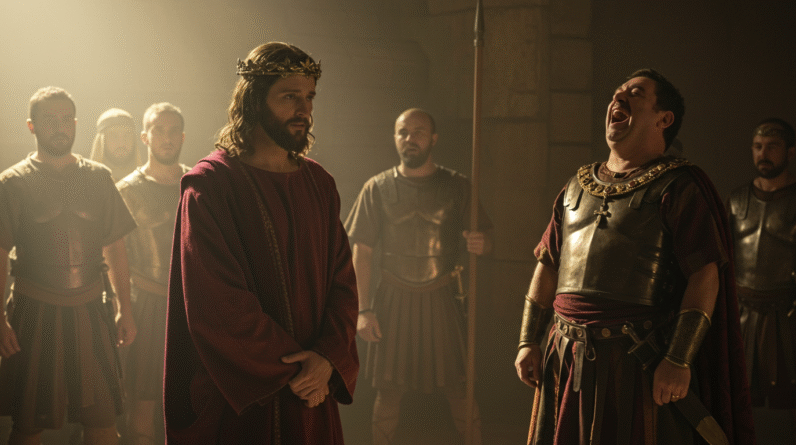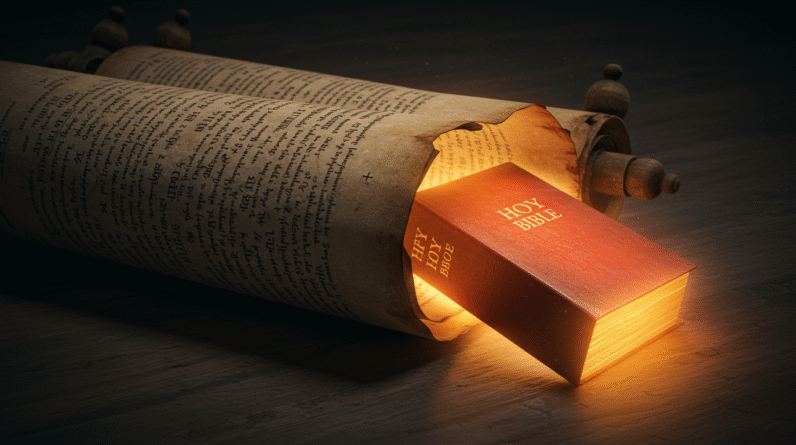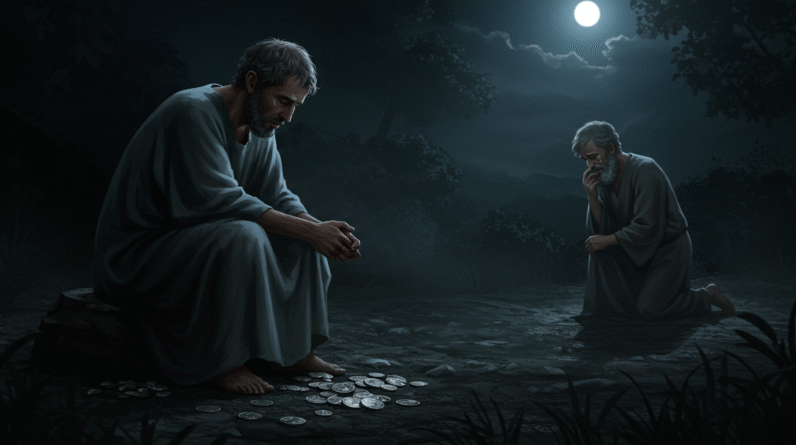Goliath’s Fate: The Danger of Defying God
Hello there, my friend. Today, let’s talk about stories, particularly one that’s been told and retold through ages, transcending generations with its profound lessons. Have you ever pondered over the legendary tale of David and Goliath? Sure, it’s more than just a fascinating underdog story; it’s about something deeply rooted in human nature—pride, rebellion, and the consequences that follow.
We’re diving into Goliath’s fate, the lurking danger of defying God, and drawing parallels to the Pharaoh of Exodus. It’s a narrative as rich as it is engrossing, and I hope you’re as intrigued to explore it as I am to share it with you.
Goliath’s Challenge and Confidence
Once upon a time, in the dusty battlefield between the Philistines and the Israelites, a man named Goliath emerged. Goliath, a giant of a man from Gath, was draped in bronze armor, his stature commanding attention and spreading dread. He wasn’t just a soldier; he was a symbol of fear and intimidation.
Day after day, for forty days, he challenged the Israelites, taunting and mocking them. His confidence was staggering, rooted in his physical prowess. It was as if he were daring God Himself, believing he was invincible—or worse, believing he was above the divine. This hubris mirrors another well-known character, the Pharaoh of Exodus, who defied God despite overwhelming evidence of His power.
The Innocence and Faith of David
Picture this: a young shepherd boy arriving at the battlefield to deliver food to his brothers. This boy was David, not a warrior by any conventional means, yet armed with a mighty faith. He heard Goliath’s blasphemous roars and defiance and felt a burn of righteous anger.
David’s faith wasn’t the faith built on rituals or dogmas; it was simple, pure, and profound. What he lacked in physical stature and battle experience, he made up for in his unwavering belief in God. This belief gave him courage, and that courage prompted action. In contrast, the Pharaoh of Exodus mirrored Goliath’s defiance with his hardened heart and refusal to acknowledge God’s supremacy even after witnessing plagues and wonders.
The Battle of Belief vs. Brute Strength
On that fateful day, a seemingly uneven battle unfolded. Goliath, with his armor and sword, stood menacingly against David, armed only with a sling and a few stones. What seemed like a lost cause to any observer was, in fact, a demonstration of the power of faith.
As Goliath moved in, sneering at the naive shepherd boy, David slung a single stone with deft precision. It struck Goliath in the forehead, and down he fell—this mighty giant, seemingly indomitable, defeated not by strength but by something much greater: faith. It’s an echo of the Exodus story, where the Pharaoh of Exodus, despite all his resources and power, couldn’t withstand the force of divine intervention.
Consequences of Pride and Rebellion
Goliath’s tale isn’t just about a fallen giant; it’s about the downfall rooted in arrogance and rebellion against the divine. His physical strength and battle expertise rendered him overconfident. He disregarded the power beyond the human realm, and this pride was his undoing. 1 Samuel 17:49 captures the pivotal moment of his defeat.
This is paralleled by the Pharaoh of Exodus whose pride wouldn’t let him free the Israelites. Plague after plague fell upon Egypt, yet the Pharaoh’s heart remained hardened. It took the final and most severe of devastating losses for him to grasp the gravity of defying divine will. The narratives of Goliath and Pharaoh remind us that pride often precedes a fall.
The Symbolic Defiance Against God
Both Goliath and the Pharaoh symbolize more than mere historical figures; they are embodiments of defiance against divine order. Goliath, through his taunts and challenges, directly confronted God’s chosen people. He wore his defiance like a badge, mistaking God’s patience for impotence. Similarly, the Pharaoh of Exodus saw himself as a god-like figure, believing his realm was untouched by the divine hand.
Their stories serve as cautionary tales. They remind us that defying God—believing oneself to be above divine law—inevitably leads to consequences, not always immediate but eventually unavoidable.
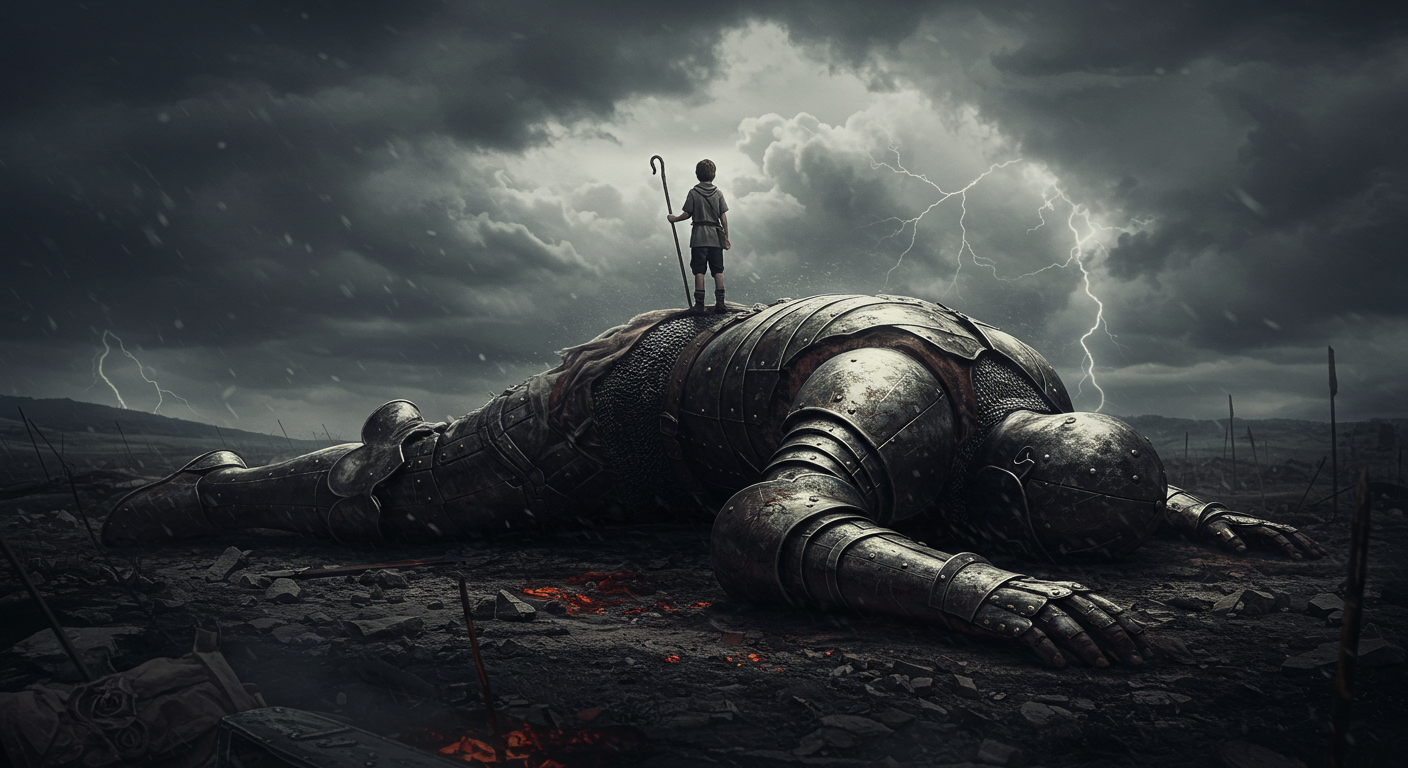
Lessons from Goliath and Pharaoh
What do their tales teach us? It’s more than just the ‘big guy’ being defeated by the ‘little guy.’ It’s a profound exploration of human ego, divine justice, and the power of faith. Here are a few takeaways:
- Hubris is blinding: Goliath and the Pharaoh of Exodus were powerful but their pride blinded them to their vulnerabilities.
- Divine justice is certain: No matter how long it takes, divine justice prevails. Their downfalls were not just personal defeats but revelations of a greater law at work.
- Faith over fear: David’s courage, born out of faith, shows that physical might doesn’t equate to invincibility. Likewise, the faith of the Israelites during their Exodus propelled them towards freedom.
These narratives are timeless because they reflect truths about human nature and spirituality that resonate within every era.
Goliath and the Pharaoh of Exodus: A Comparative Reflection
To better understand the essence of defiance against divine power, comparing Goliath’s tale with that of the Pharaoh of Exodus is essential. While Goliath’s challenge was direct, standing in the valley thundering his defiance, the Pharaoh’s defiance was political, wielding his authority to suppress God’s people.
Yet both faced a similar fate—destruction. What can we learn when comparing them side by side?
Root of Defiance
For Goliath, defiance stemmed from personal pride. He believed in his invincibility, despising the Israelites and their God. His challenge reflected a direct confrontation, an embodiment of ego that led him to underestimate the divine. The Pharaoh of Exodus, in contrast, reflected a systemic arrogance. His refusal to release the Israelites revealed his belief in absolute power over life and death, considering himself untouchable by the divine.
Reaction and Outcome
David’s approach to Goliath was unexpected, taking down the giant through insight and calculated courage. It’s a reminder that God’s chosen path is often different from human expectation. Pharaoh’s downfall, recorded in Exodus 14:28, involved multiple warnings and divine interventions before his pride led to the Red Sea’s devastating closure. Both stories present defiance met with consequences where strength failed against divine will.
The Lasting Impact of Their Stories
The impact of Goliath’s eventual defeat and Pharaoh’s stubbornness extends beyond the pages of history. They hold personal and collective lessons, influencing cultures and moral understandings through the centuries.
Literature and Beyond
Numerous references to David and Goliath, from literature to pop culture, symbolize the victory of the underdog, the triumph of faith and intelligence over brute force. Similarly, the Pharaoh of Exodus is a story of liberation and divine justice, often invoked to symbolize the triumph of faith over oppression.
Their stories are also staples in religious discourse, illustrating ethical and spiritual teachings across different faith cultures. They underscore the importance of humility before the divine and the folly of defying spiritual teachings.
Modern-Day Interpretations
In today’s world, these tales continue to resonate as metaphors for personal struggles and triumphs over seemingly insurmountable obstacles. In the realm of self-development and spirituality, they’re often cited as examples of inner strength and the power of belief.
Moreover, they serve as ethical reminders; as models of what happens when pride corrupts true understanding and the consequence of not adhering to a higher moral compass. The Pharaoh of Exodus particularly stands tall as a cautionary figure against moral and spiritual hubris.
Goliath’s Symbolism: More Than Literal
If we delve deeper, Goliath’s presence can transcend the literal. He becomes a metaphor for internal struggles, personal “giants” like doubts, fears, and vices. His defeat is symbolic of overcoming these through faith.
Goliath as Internal Adversaries
We all have giants in our lives, don’t we? Those seemingly unbeatable obstacles, looming fears, or unshakable doubts that taunt and challenge us. These are the Goliaths we face, sometimes daily. The story urges us to find our inner David—our courage and faith—to face what suppresses or intimidates us.
Personal Transformation through Faith
Think of David not just as a historical figure, but as a representation of a spiritual journey. His victory isn’t just a military one. It’s about overcoming internal divisions through faith; about trusting a higher power to guide us against our foes. Here, the Pharaoh of Exodus becomes a cautionary contrast: what happens when ego overtakes one’s path to growth and enlightenment.
Role of Divine Intervention
Faith in divine intervention—believing that there’s a greater force aiding us—is a central theme when confronting life’s “giants.” Goliath’s defeat was not achieved by David alone, but with divine assistance. This integral element guides us to trust in something greater than ourselves.
Why Goliath and Pharaoh Matter Today
Why do they matter to us? The stories of Goliath and the Pharaoh of Exodus aren’t confined to ancient texts; they continue to carry contemporary significance because they reflect universal themes and challenges.
Lessons for Leaders and Influencers
For anyone in leadership or influence, these stories serve as reminders of humility and the genuine application of power. Leaders often face the temptation of Goliath-like pride or Pharaoh-like stubbornness, believing themselves above the consequences of their actions or the influence of a higher moral order.
These narratives provide a moral and ethical framework for leadership by illustrating the peril of losing sight of one’s humility and spiritual obligations. They encourage leaders to wield their power wisely, to be servants to principles larger than themselves.
A Personal Call to Introspection
On a more personal scale, they invite introspection. How often do we allow pride to cloud our judgment? Are there “giants” in our lives that we need to face with faith and courage? How do we respond to our challenges—like the humble David, or the defiant Goliath and Pharaoh?
These reflections can foster personal growth, teaching us to seek divine guidance amid trials instead of relying solely on our capabilities.
Conclusion: The Undying Influence of Ancient Tales
As we wrap up our journey into the narratives of Goliath and the Pharaoh of Exodus, we find that their stories, though ancient, hold timeless truths. They remind us of the dangers of defiance against the divine, the consequences of unchecked pride, and the power of faith and humility.
Their tales are continuous reminders and encouragement. Whether you’re facing a metaphorical Goliath in your life or grappling with a sense of resistance as robust as the Pharaoh’s, reflecting on these stories can guide you back to a path of faith, reflection, and humility.
Explore More
For further reading and encouragement, check out these posts:
👉 7 Bible Verses About Faith in Hard Times
👉 Job’s Faith: What We Can Learn From His Trials
👉 How To Trust God When Everything Falls Apart
👉 Why God Allows Suffering – A Biblical Perspective
👉 Faith Over Fear: How To Stand Strong In Uncertain Seasons
👉 How To Encourage Someone Struggling With Their Faith
👉 5 Prayers for Strength When You’re Feeling Weak

📘 Jesus and the Woman Caught in Adultery – Grace and Mercy Over Judgement
A powerful retelling of John 8:1-11. This book brings to life the depth of forgiveness, mercy, and God’s unwavering love.
👉 Check it now on Amazon
As a ClickBank Affiliate, I earn from qualifying purchases.
Acknowledgment: All Bible verses referenced in this article were accessed via Bible Gateway (or Bible Hub).
“Want to explore more? Check out our latest post on Why Jesus? and discover the life-changing truth of the Gospel!”



